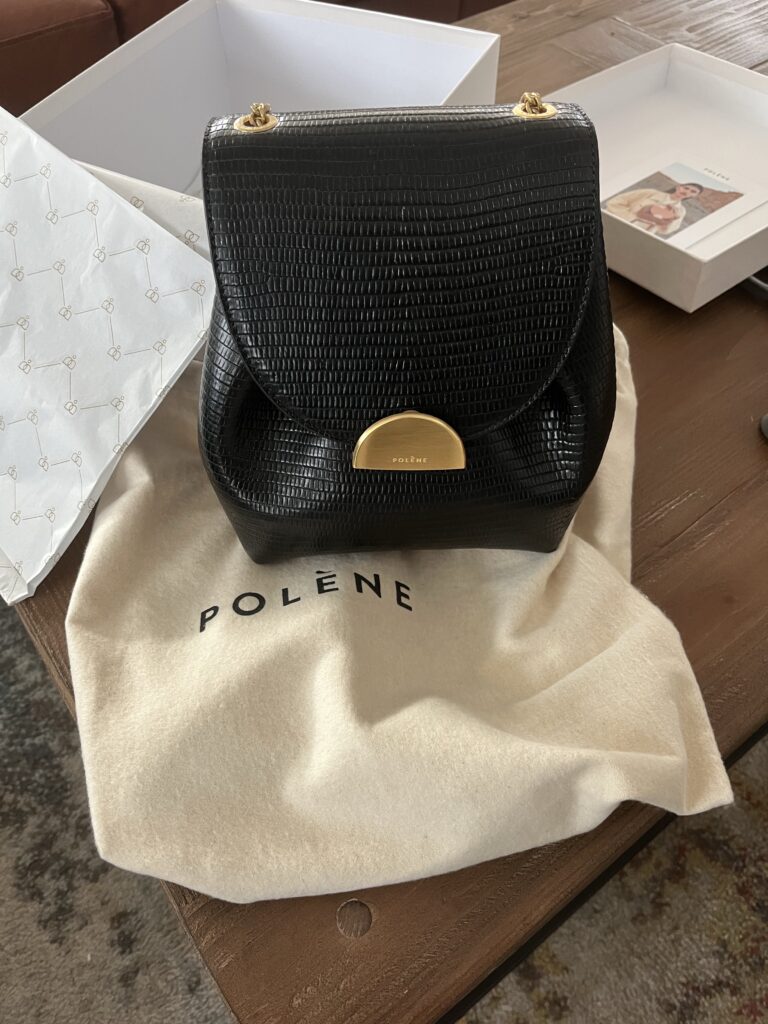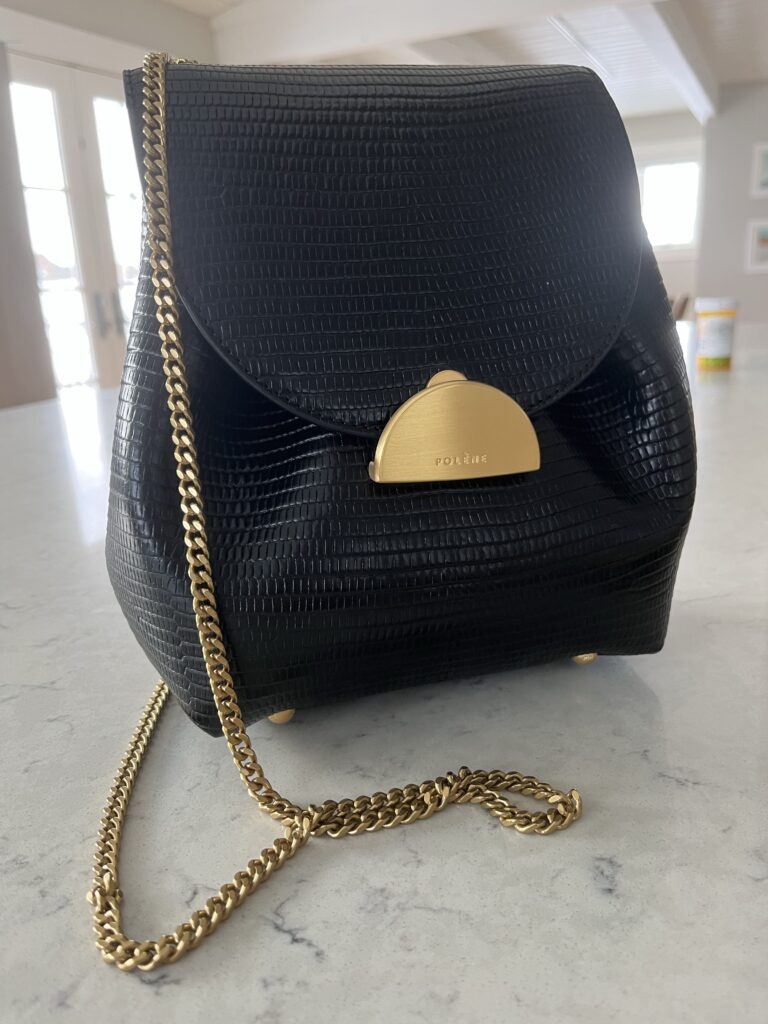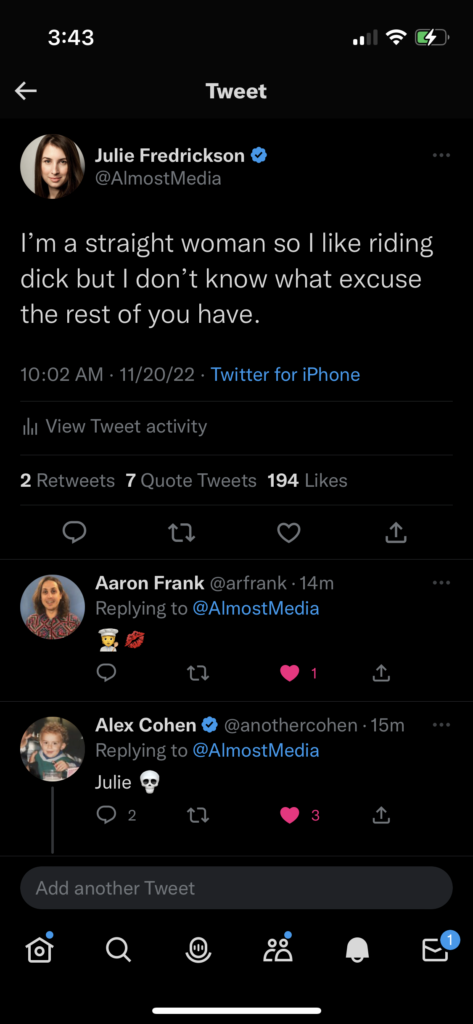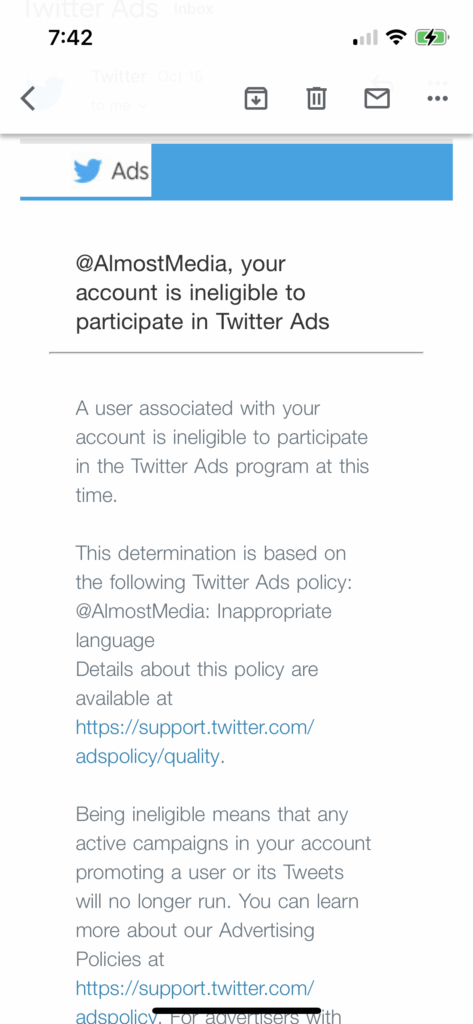I haven’t bought a new handbag for nearly a decade. While I like fashion I have never been a hardcore accessories person. One generally been of the mind that those are anchor pieces that you keep for years and years. I didn’t see much point in acquiring trends as it just seemed so expensive. I buy more for longevity.
The last handbag I bought was a camel Masur Gavriel bag. I think it was sometime in 2013 but it may have been earlier. I found a photograph dating it no later than 2014 but I can’t be sure. I’d seen a small piece of press about it as it being a kind of super minimalist brand by these two bicoastal pretty girls. I loved the clean look of the tote with a long full leather panel and a bright yellow sunny interior. I found a boutique that stocked it in Los Angeles. I think I paid less than $300 for it.
I’d talked it up to a girlfriend in finance and she bought one. She then talked it up to her friend who happened to be Lauren Santo Domingo and then next thing I knew the nag was absolutely everywhere. It subsequently raided a large private equity round. It’s brand book became so popular a fast casual yuppie food brand called Digg Inn ripped them off. The brand was a genuine hit.
Being ahead on a handbag like that is the fashion equivalent of being in the best series A round in Silicon Valley as the new angel investor. It means a lot but only after it’s been proven out to the IPO. I haven’t felt that kind of kinship with a brand in a while. And certainly not with a handbag. The high conviction I had with Mansur Gavriel should have made me pursue the two designers as I just knew in my gut this bag was fucking it. Really the one that got away for me.
So I am excited that I got a new handbag today. The first one I have purchased since my Mansur camel tote. I’ve literally not purchased a single handbag in that entire time though I did buy a backpack and a suitcase.
I saw this across it across a bunch of fashion blogs over the year. It has hit a lot of mainstream fashion news. So fashionistas are definitely well and truly ahead of me. I am not a market editor or an influencer being sold by fifteen different publicity firms. Though I’d absolutely like to be. There was absolutely a time when I was very much in the scene but let’s be real now I’m an eccentric investor in Montana. I’m cool just in a different way.

The bag is called Numero Uno Mini from a French label called Polène. It’s a clean bag. But it’s got a little personality in it’s shape. There were smooth calfskin options but I’d been searching for a modestly dressier bag that would be a bit of a statement for day but also formal enough it could accompany a cocktail dress or make due at a wedding. It works up until you need a clutch because it’s a gala or an awards ceremony.

I feel like it’s a bit louder than the bag it’s replacing which was a black calfskin envelope clutch with a gold chain that is bought from Barney’s. I’d got it on sale for like $150 bucks as well it was a house brand I guess. But it was just so damn versatile I used the fuck out of it. I haven’t seen it since we moved to Montana and I’m a bit concerned it’s gone for good. So perhaps this new Mini will find a home in my routine.
I’m very impressed by its quality. The stitching is tight and lean. The hardware is bright and sturdy. The logo is very discretely etched into corners of the hardware and on the feet of the bag. Which is just a nice touch at a $350 price point. Recently it’s felt like everything is a bit shittier and more expensive. So it’s a joy to get something that feels like a great value and genuinely nice. I hadn’t made some dirty compromises with a direct to consumer business. So yeah I’m impressed with a handbag.



